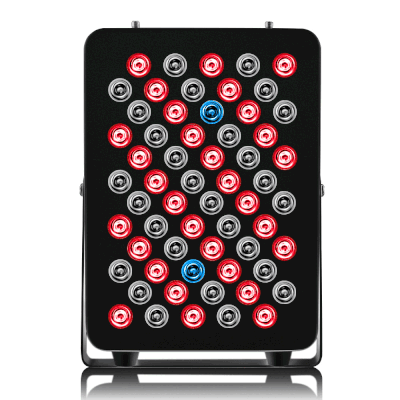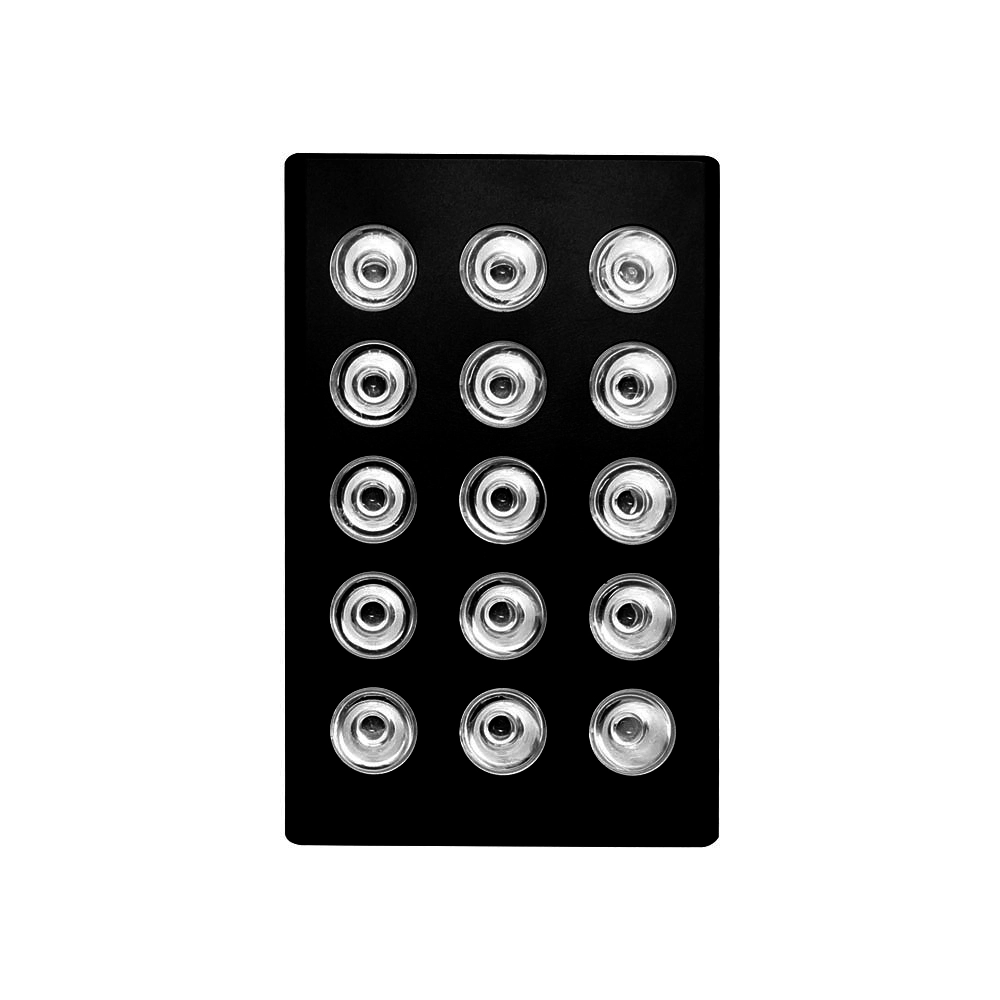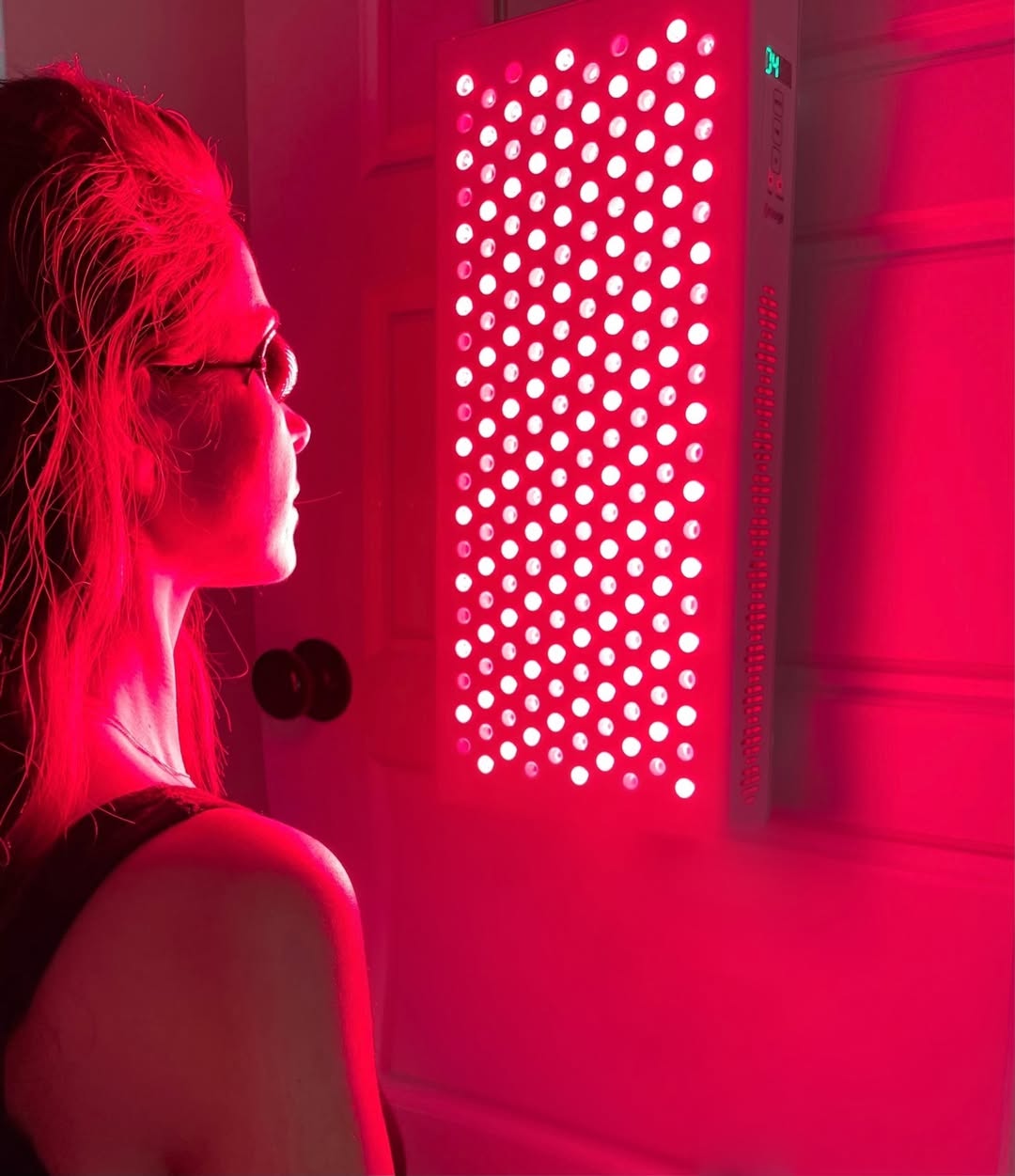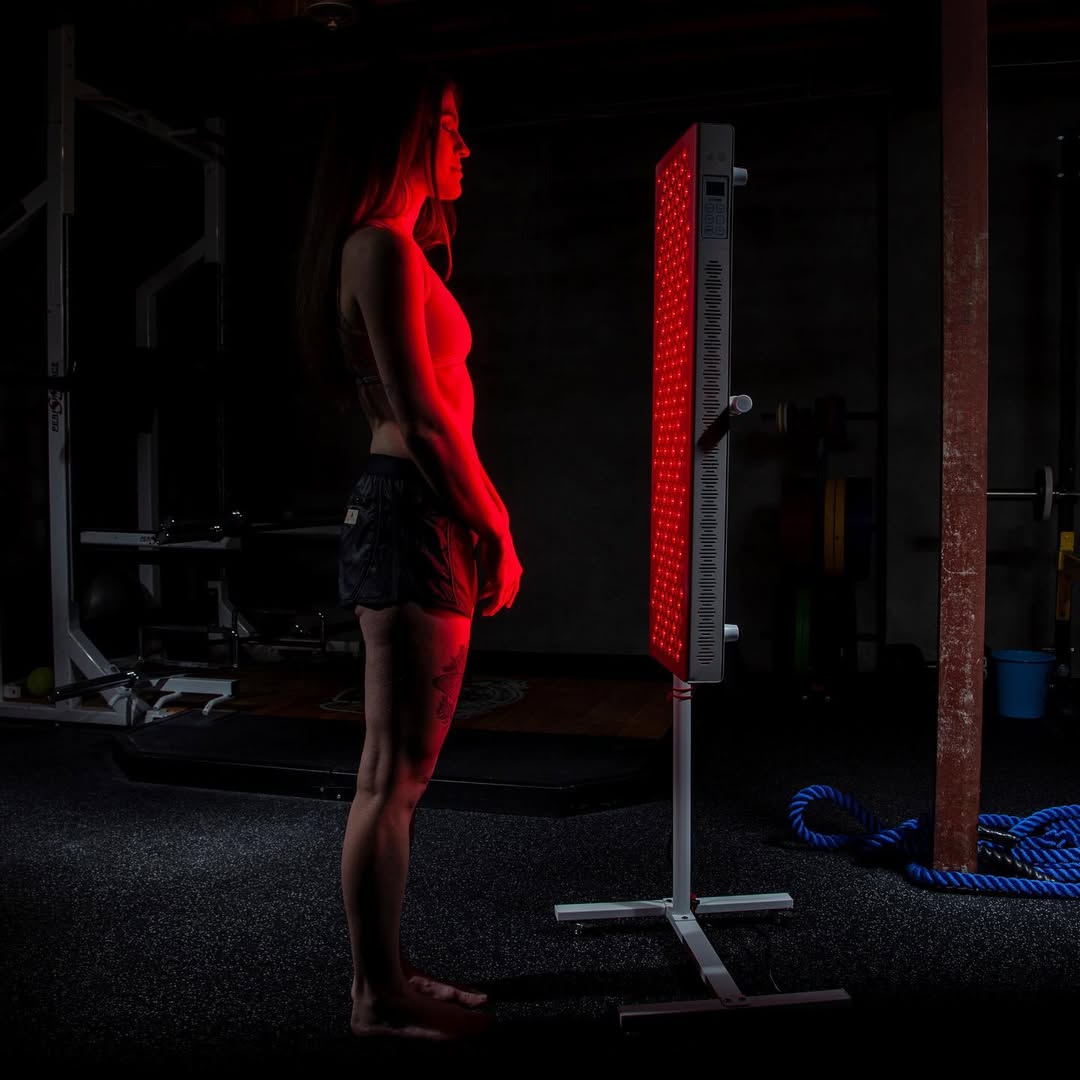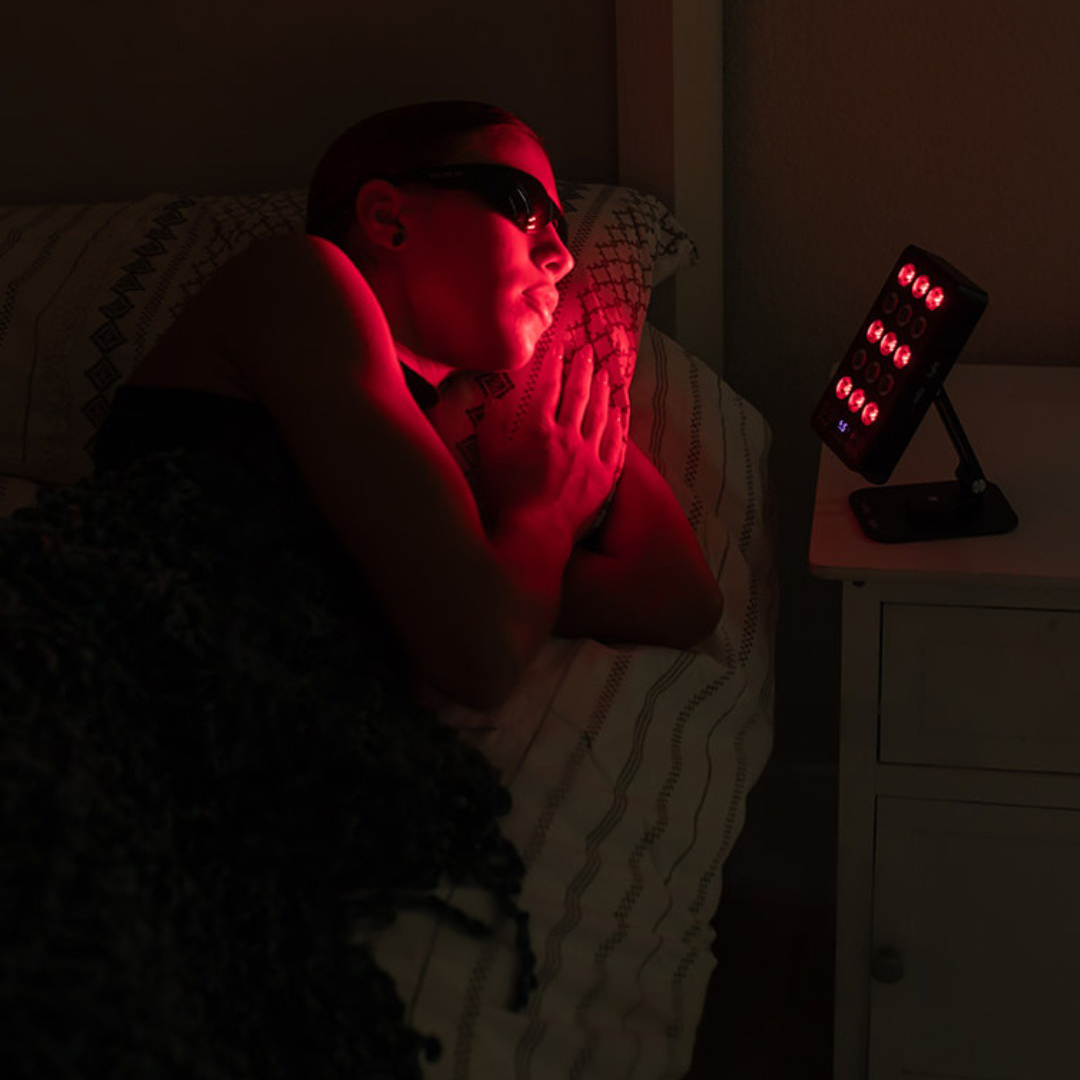![]() Free Shipping
Free Shipping ![]() Buy Now, Pay Later
Buy Now, Pay Later ![]() Eligible
Eligible
How Red Light Therapy Can Combat Brain Fog
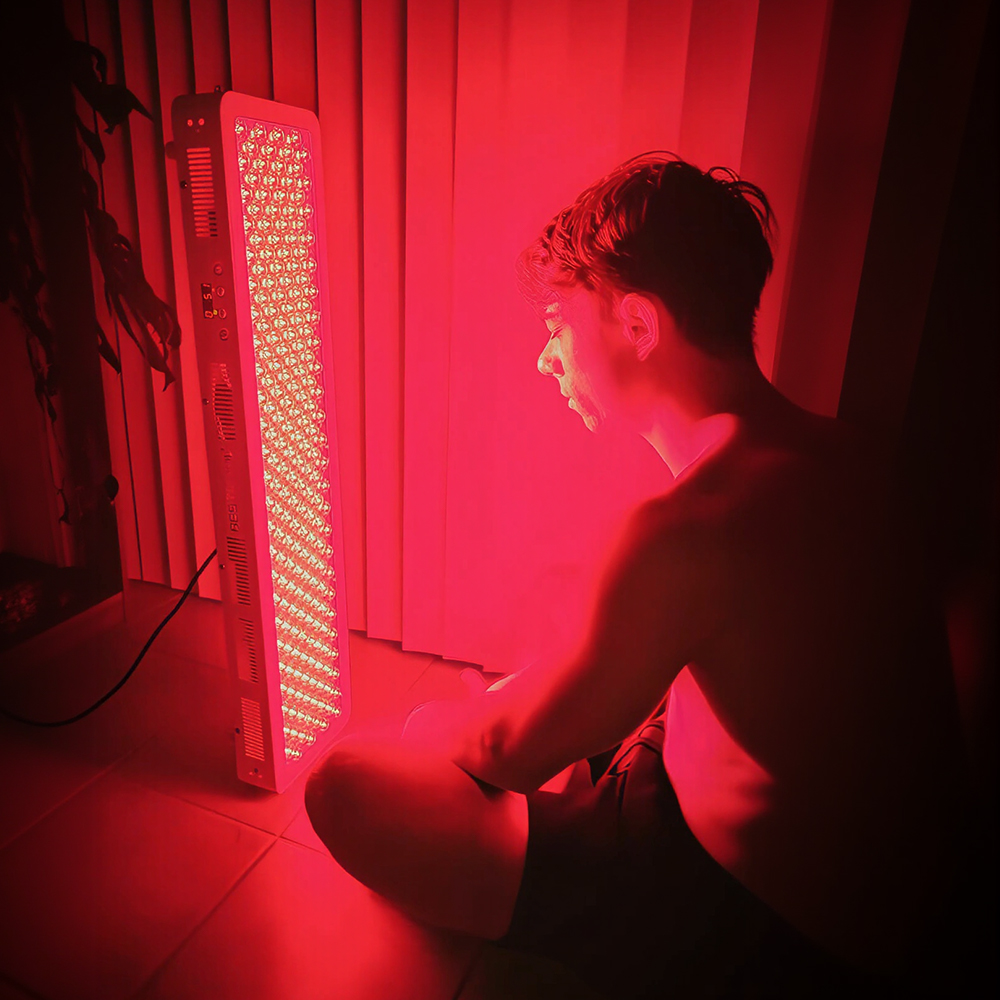
We’ve all experienced it: that frustrating feeling of mental cloudiness, forgetfulness, and a lack of focus. This is commonly known as brain fog. It’s not a medical condition itself but a symptom of other issues, including stress, poor sleep, hormonal changes, inflammation, and chronic fatigue.
For many, brain fog is more than just an occasional inconvenience; it’s a daily struggle that impacts work, relationships, and overall quality of life. If you’re searching for a drug-free, non-invasive way to reclaim your mental sharpness, red light therapy (RLT) is emerging as a promising solution.
What is Red Light Therapy?
Red Light Therapy (RLT), also known as Photobiomodulation (PBM), is a therapeutic technique that uses low-wavelength red and near-infrared (NIR) light to stimulate cellular function. Unlike UV light which can damage the skin, red and NIR light are safe and penetrate deep into the body’s tissues.
Originally developed for wound healing and pain relief, research now shows its profound effects on the brain and cognitive function. The light is typically delivered through LED panels or helmets designed for scalp application.
The Science Behind the Light: How RLT Targets Brain Fog
The mechanism of red light therapy is elegantly simple and rooted in fundamental cellular biology. Here’s how it works to combat brain fog:
Boosting Cellular Energy (ATP Production)
The primary fuel for all cellular activities, including brain cell function, is a molecule called Adenosine Triphosphate (ATP). The mitochondria are the “powerhouses” of the cell, responsible for producing ATP.
Red and near-infrared light photons are absorbed by a key enzyme in the mitochondria called cytochrome c oxidase. This absorption supercharges the mitochondria’s efficiency, leading to a significant increase in ATP production. With more energy, brain cells (neurons) can communicate more effectively, repair themselves, and perform at their peak.
Expert Insight: “Think of your brain cells as tiny batteries. Brain fog can be a sign of low charge. Red light therapy acts like a universal charger, plugging into the mitochondria to recharge your cognitive batteries from the inside out.”
VELLGUS Elite V2
THE #1 RATED RED LIGHT DEVICE
Reducing Inflammation and Oxidative Stress
Chronic inflammation and oxidative stress are major contributors to brain fog and neurodegenerative conditions. RLT has been demonstrated to:
- Reduce inflammatory markers in the brain.
- Activate antioxidant pathways, helping to neutralize harmful free radicals that damage cells.
By creating a healthier, less inflamed environment, RLT allows the neural networks to function without “static” or interference.
Improving Cerebral Blood Flow
A well-oxygenated brain is a sharp brain. Studies indicate that RLT can stimulate the formation of new capillaries (angiogenesis) and improve circulation. This enhanced blood flow delivers more oxygen and nutrients to brain cells while flushing out metabolic waste, further clearing the fog.
The Evidence: What Does the Research Say?
The scientific community is actively exploring the cognitive benefits of RLT. While more large-scale human trials are underway, the existing data is compelling.
- A 2013 study published in Photomedicine and Laser Surgery found that near-infrared light applied to the head improved memory and attention in healthy volunteers.
- Research on patients with traumatic brain injury (TBI) has shown that RLT can significantly improve executive function, memory, and sleep.
- A 2017 review in Neurophotonics concluded that PBM is a “promising therapeutic approach for a range of neurological and psychological conditions.”
Red Light Therapy vs. Other Brain Fog Solutions
How does RLT stack up against other common approaches to managing brain fog?
| Method | How It Works | Pros | Cons |
|---|---|---|---|
| Red Light Therapy | Energizes mitochondria, reduces inflammation, improves blood flow. | Non-invasive, drug-free, addresses root cause, minimal side effects. | Requires consistency, upfront cost for home devices. |
| Caffeine & Stimulants | Blocks adenosine receptors, providing a temporary energy boost. | Immediate effect, widely accessible. | Can cause jitters, crashes, dependency, disrupts sleep. |
| Nootropic Supplements | Alters neurochemicals to enhance cognitive function. | Can be effective for some, variety of options. | Effects vary widely, potential for side effects, unregulated market. |
| Lifestyle Changes (Diet/Sleep) | Supports overall brain health through foundational wellness. | Crucial for long-term health, no cost. | Requires significant discipline, results can be slow to manifest. |
How to Use Red Light Therapy for Brain Health
If you’re ready to try RLT for brain fog, you have two main options:
- Clinical/In-Clinic Sessions: Many wellness clinics, chiropractors, and functional medicine practices offer RLT. This is a great way to start under professional guidance.
- At-Home Devices: For consistent use, at-home devices are popular. These include:
- RLT Helmets/Caps: Specifically designed to target the scalp and skull for optimal brain exposure.
- Handheld Panels: Can be held close to the head or temples.
A Simple Protocol to Get Started
- Wavelength: Look for devices that offer both red (630-660nm) and near-infrared (810-850nm) light, as NIR penetrates deeper into the brain.
- Duration: Start with short sessions of 5-10 minutes per day.
- Frequency: Consistency is key. Aim for 3-5 sessions per week.
- Distance: Follow the manufacturer’s instructions, typically placing the device 1-6 inches from your scalp.
Important Note: “While red light therapy is exceptionally safe, it’s always wise to consult with your healthcare provider before starting any new treatment, especially if you have a pre-existing medical condition.”
Brain fog doesn’t have to be your new normal. Red light therapy offers a scientifically-backed, non-invasive pathway to enhanced mental clarity, improved focus, and renewed cognitive energy. By working at the most fundamental cellular level, it addresses the root causes of brain fog—low energy, inflammation, and poor circulation.
Embrace the light and step out of the fog into a sharper, more focused state of mind.


